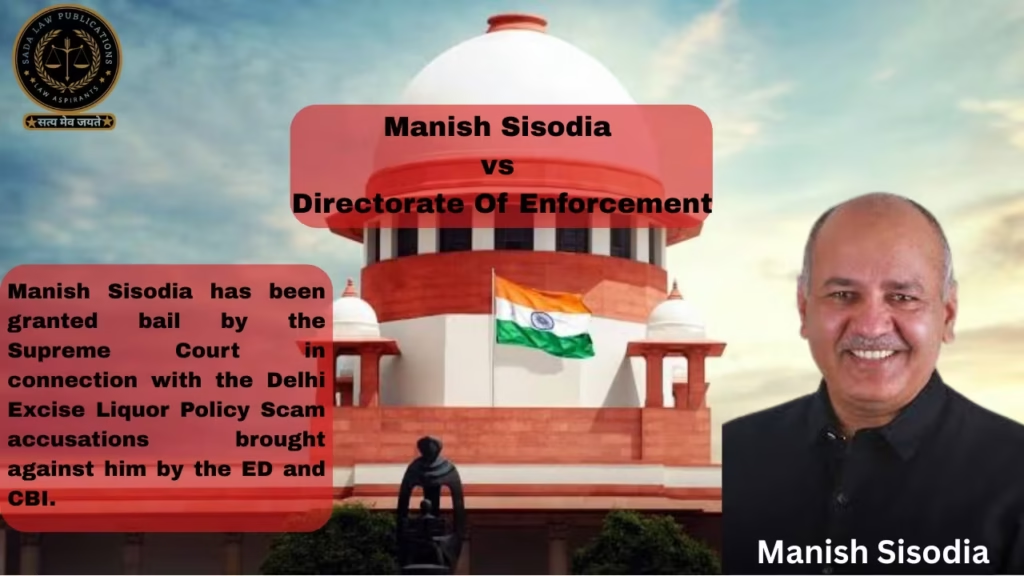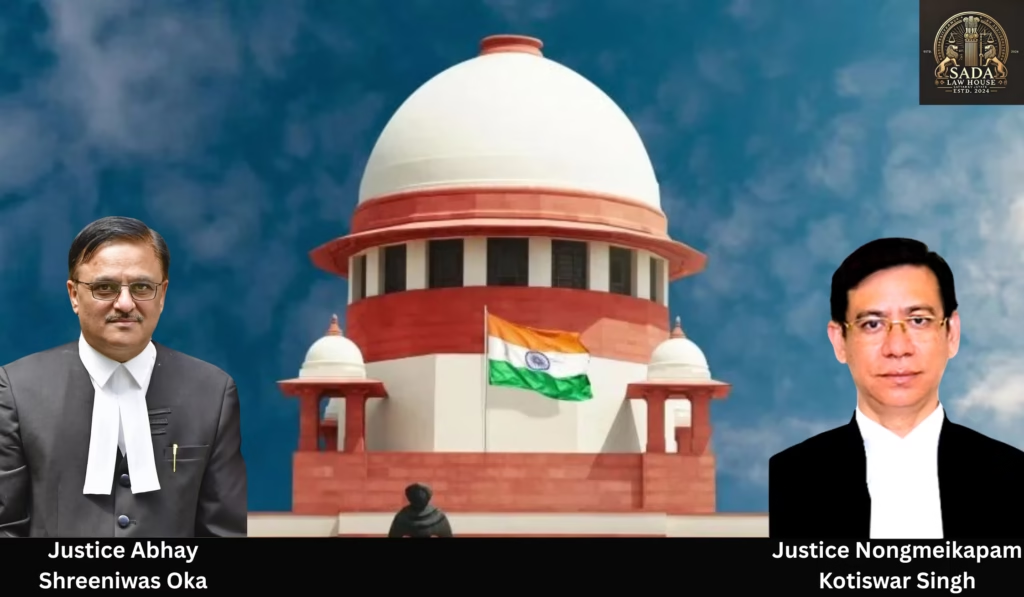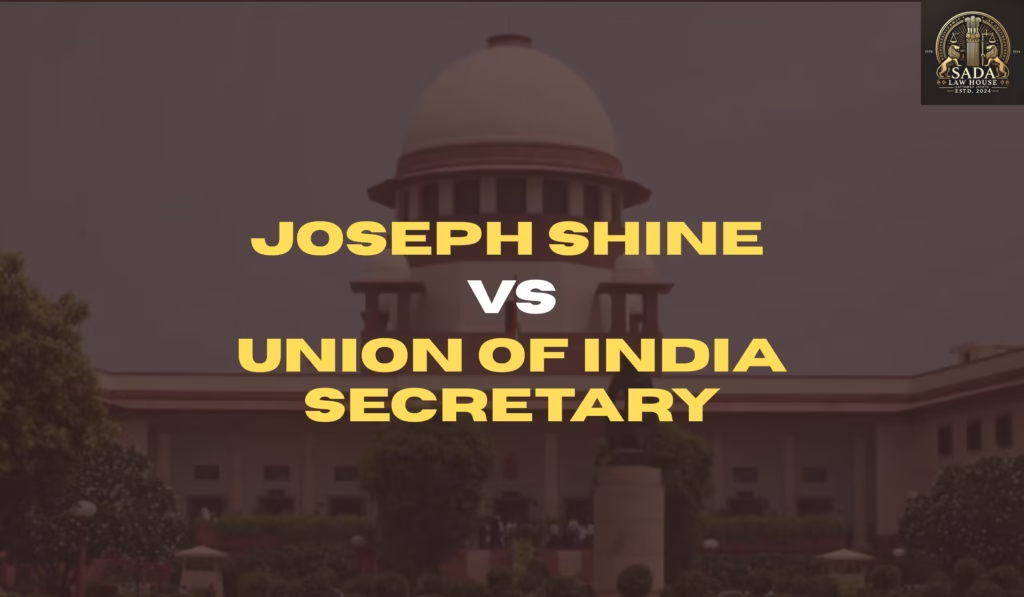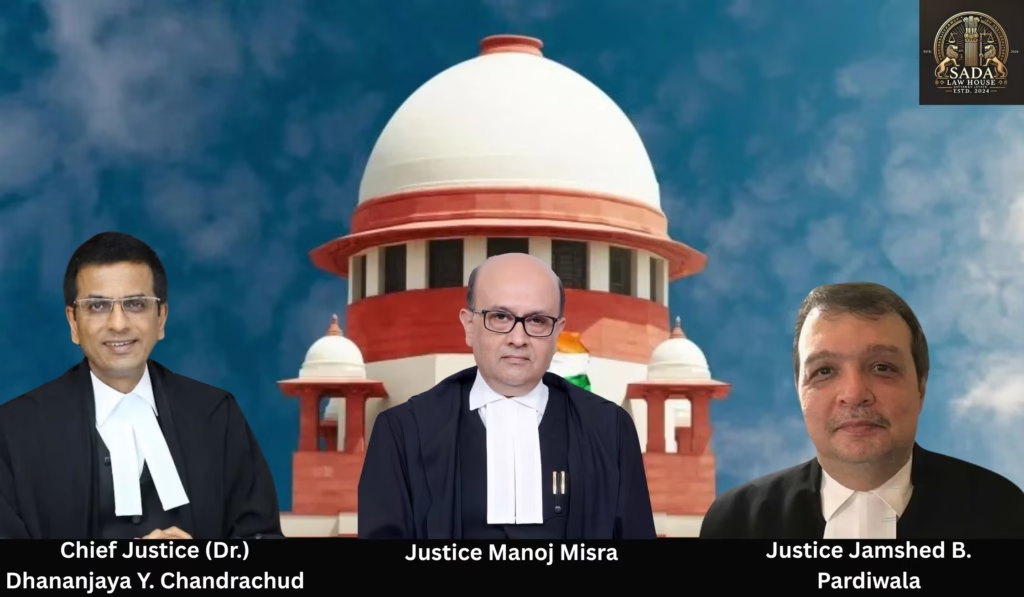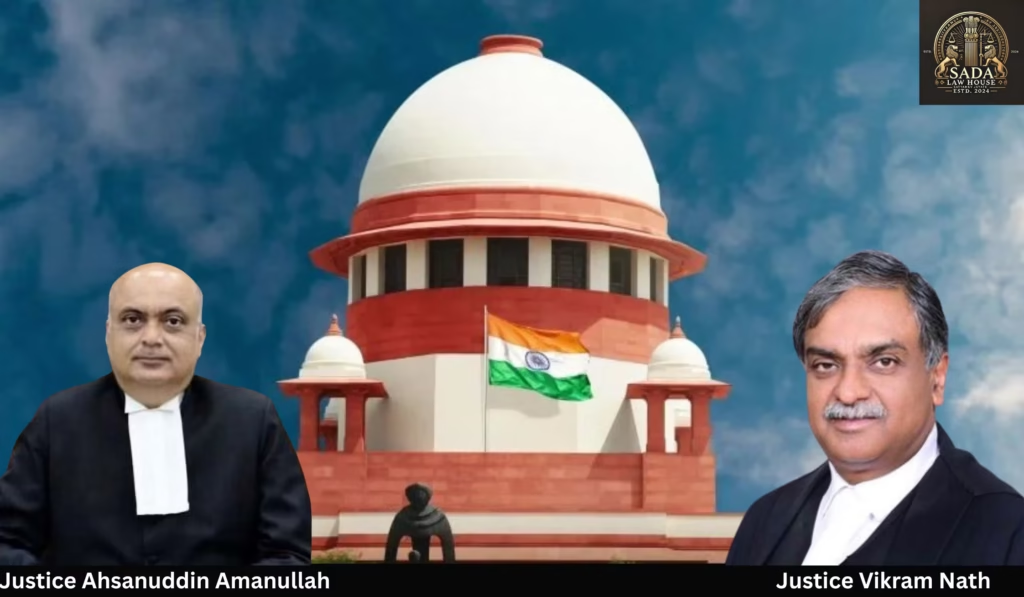Supreme Court Upholds Child’s Right to Privacy, Restricts DNA Tests in Divorce Cases Alleging Adultery
Trending Today Supreme Court Upholds Child’s Right to Privacy, Restricts DNA Tests in Divorce Cases Alleging Adultery Supreme Court Grants Bail to Manish Sisodia in Delhi Liquor Policy Scam Citing Article 21 Rightsv Uttarakhand High Court Flags Misuse of ST Certificates Based on Residency in Tribal Areas Jharkhand Government Launches Health Insurance Scheme for Advocates and Families Delhi High Court Directs NLU Consortium to Ensure CLAT Access Is Not Denied Due to Language Barriers India to Conduct Largest Civil Defense Drill Since 1971 Amid Rising Tensions with Pakistan Supreme Court Mandates Cashless Treatment for Road Accident Victims in Landmark 2025 Ruling: S. Rajaseekaran v. Union of India Supreme Court on Unlawful Arrest: Vihaan Kumar Case and the Right to Be Informed of Grounds of Arrest Adultery and the Armed Forces: Applicability of the Joseph Shine Verdict Post-Decriminalization Steps to Protect the Great Indian Bustard: Insights from the Supreme Court’s Landmark Judgment Supreme Court Upholds Child’s Right to Privacy, Restricts DNA Tests in Divorce Cases Alleging Adultery NITU KUMARI 07 May 2025 The Supreme Court of India ruled that courts must prioritize a child’s right to privacy and legitimacy before ordering DNA tests in divorce cases alleging adultery. Learn how this landmark judgment shapes family law and children’s rights in India. Overview of the Case In a landmark judgment dated February 20, 2023, the Supreme Court of India emphasized the importance of a child’s right to privacy and legitimacy, ruling that DNA testing should not be ordered frivolously in divorce proceedings involving allegations of adultery. Case Title: Aparna Ajinkya Firodia vs Ajinkya Arun FirodiaCitation: Civil Appeal No. 1308/2023 | 2023 INSC 146Judges: Justice V. Ramasubramanian and Justice B. V. Nagarathna Background of the Case The husband, amid an ongoing divorce case, requested a DNA test to dispute the paternity of the second child born during the marriage, alleging extramarital relations. Both the Family Court and the Bombay High Court approved the request. The wife challenged the decision before the Supreme Court of India. Key Legal Issue Can a DNA test be ordered during divorce proceedings solely to prove adultery? Supreme Court Ruling: Child’s Right to Privacy Is Paramount The Supreme Court ruled that ordering a DNA test in this context violates the child’s right to privacy and legitimacy. The Court emphasized that genetic identity is a sensitive and private matter, protected under broader privacy rights and that a child’s identity should not be arbitrarily questioned in court. “The child’s welfare, dignity, and psychological well-being must take precedence over proving claims of adultery.” Relevant Legal Provisions Cited Section 112 of the Indian Evidence Act, 1872: Presumes legitimacy of a child born during a lawful marriage unless non-access is proven. Section 114, Illustration (h): Allows courts to draw adverse inferences when a party refuses to answer questions. Children’s Rights Under International Law The Court referenced Article 8 of the United Nations Convention on the Rights of the Child, which recognizes the child’s right to preserve their identity, including nationality, name, and family relations. Conclusion: Protecting the Child’s Best Interests This decision is a significant step in reinforcing child welfare principles in Indian family law. It highlights the judiciary’s responsibility to balance the rights of parents with the psychological and emotional well-being of the child. According to Justice Ramasubramanian, the child’s perspective must be considered before ordering intrusive procedures like DNA tests, especially when the child’s identity and legitimacy are at stake. Leave a Reply Cancel Reply Logged in as Sada Law. Edit your profile. Log out? Required fields are marked * Message* Case Laws Supreme Court Upholds Child’s Right to Privacy, Restricts DNA Tests in Divorce Cases Alleging Adultery Supreme Court Upholds Child’s Right to Privacy, Restricts DNA Tests in Divorce Cases Alleging Adultery Sada Law • May 7, 2025 • Case law • No Comments Supreme Court Grants Bail to Manish Sisodia in Delhi Liquor Policy Scam Citing Article 21 Rightsv Supreme Court Grants Bail to Manish Sisodia in Delhi Liquor Policy Scam Citing Article 21 Rightsv Sada Law • May 7, 2025 • Case law • No Comments Supreme Court Mandates Cashless Treatment for Road Accident Victims in Landmark 2025 Ruling: S. Rajaseekaran v. Union of India Supreme Court Mandates Cashless Treatment for Road Accident Victims in Landmark 2025 Ruling: S. Rajaseekaran v. Union of India Sada Law • May 6, 2025 • Case law • No Comments 1 2 3 … 5 Next »


